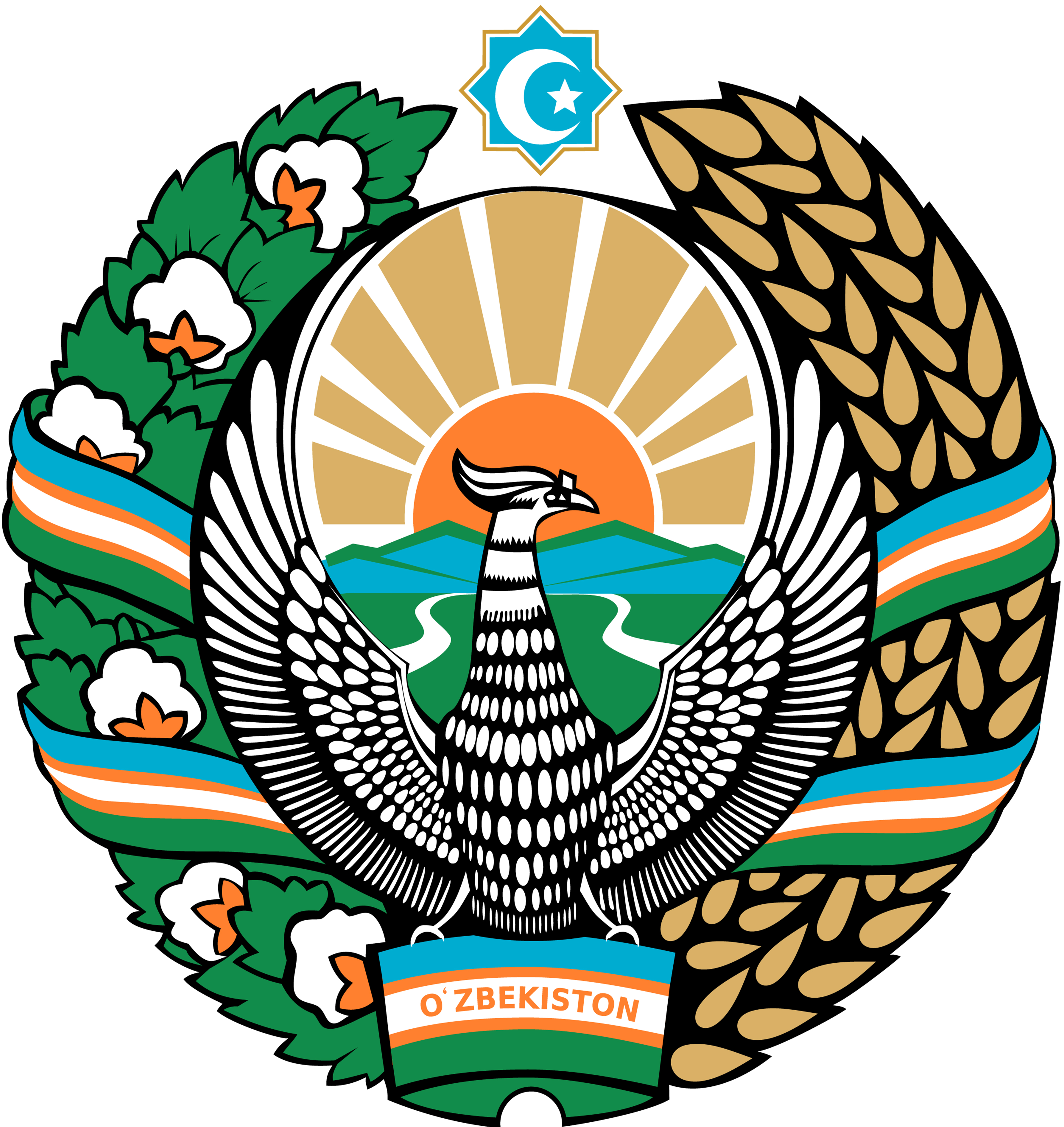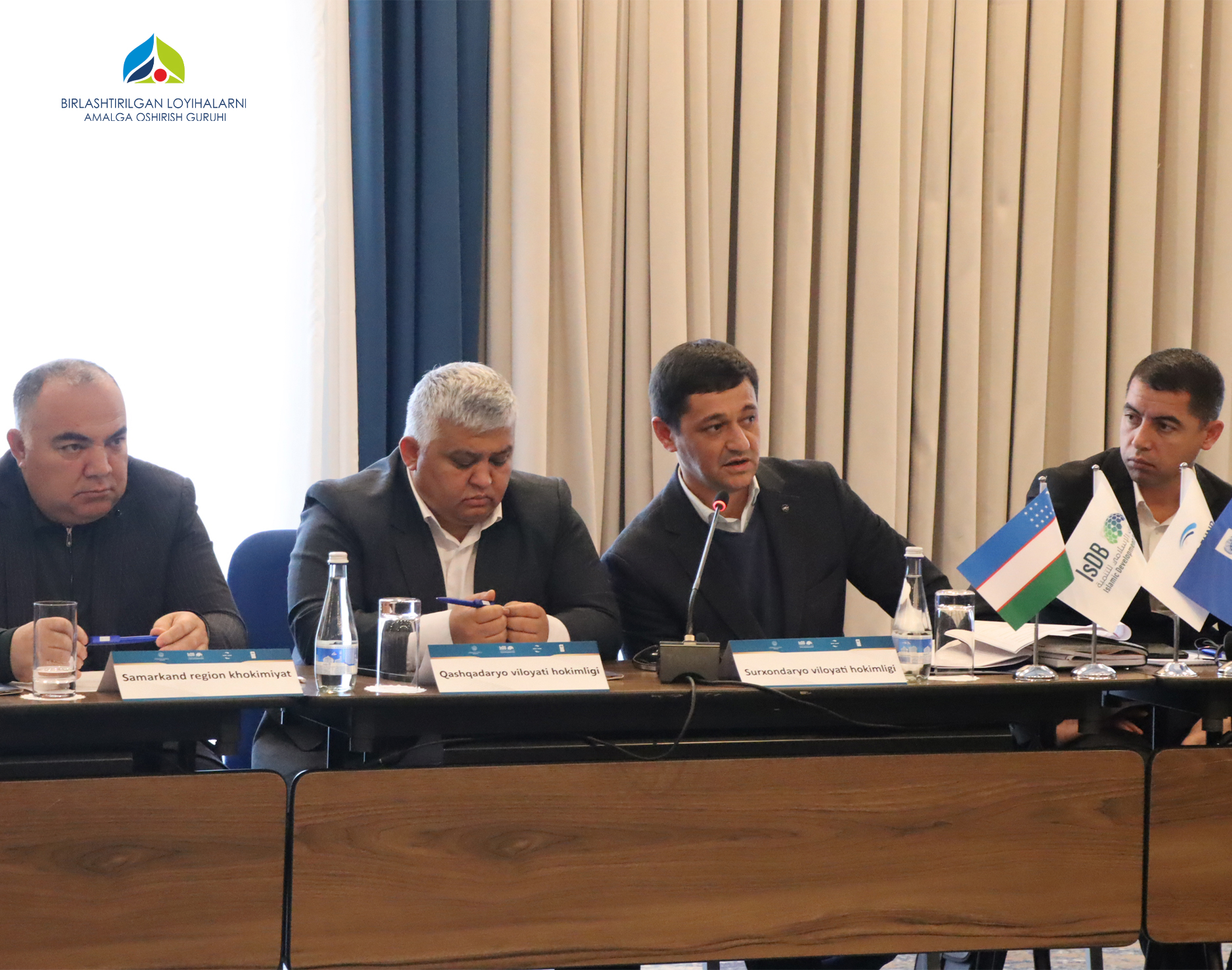

News
Board meetings for the Ministry of Economy and Finance initiatives Sustainable Rural Development Project and the Integrated Rural Development Project (Phase 2) were held.
The event was attended by Deputy Minister of Economy and Finance Samandar Sadullayev, UNDP Resident Representative in Uzbekistan Akiko Fujii, Operations Team Leader at the Regional Hub of the Islamic Development Bank Wahyu Wijayanto (online), representatives from the Council of Ministers of the Republic of Karakalpakstan, Khorezm, Bukhara, Navoi, Samarkand, Kashkadarya and Surkhandarya regions, as well as employees of the Joint Projects Implementation Unit and media representatives.
 The discussions focused on reviewing the 2024 achievements of projects carried out in collaboration with the Islamic Development Bank, the OPEC Fund for International Development, and the United Nations Development Programme. The participants also outlined tasks for 2025.
The discussions focused on reviewing the 2024 achievements of projects carried out in collaboration with the Islamic Development Bank, the OPEC Fund for International Development, and the United Nations Development Programme. The participants also outlined tasks for 2025.
Within the Sustainable Rural Development Project, 170 mahallas in 20 districts of Karakalpakstan, Bukhara, Navoi, and Khorezm regions were targeted. According to the resolution, 111 facilities—comprising 71 social sector facilities and 40 community-run neighborhood complex facilities—are to be newly constructed.
One significant achievement was the development of 40 cluster Community Development Plans (CDPs), created with the active participation of local residents. These CDPs serve as actionable roadmaps for implementing 895 subprojects, aimed at rebuilding and improving social infrastructure in rural areas.
From newly paved roads and upgraded sewage systems to modernized healthcare facilities and schools, the subprojects reflect the expressed needs of rural residents. As part of the project, 170 initiative groups, involving 1,491 people, were established to oversee the project’s implementation. A noteworthy highlight is the active participation of women, contributing significantly to gender equality goals.
At the same time, tenders were held in all of the 111 social spheres, and mahalla and the household service center facilities are being built anew in the regions (99 facilities have begun construction work and 3 facilities are in the process of starting construction work), and a contract process is underway for 5 facilities. Also, the evaluation of the tender results of the 4 facilities is being considered by the commission.
In the Integrated Rural Development Project (Phase 2), which was approved this year, 157 mahallas in 21 districts across Kashkadarya, Samarkand, and Surkhandarya regions are being covered.

In 157 communities across three pilot regions, training sessions were conducted to engage local residents in the project’s implementation process, enabling them to actively participate in decision-making for the development of their mahallas. A total of 11,000 people, including 4,413 women, gathered to discuss how they could improve their lives. These meetings went beyond just exchanging ideas – they were a moment for making decisions about transforming the mahallas, based on the needs and priorities of the population. As a result, 157 initiative groups were formed, consisting of farmers, youth, and entrepreneurs, including 345 women and 15 people with disabilities, highlighting the project’s inclusive approach. The groups will monitor the implementation of subprojects serving as real drivers of future transformations.
By the project’s conclusion, the living conditions of over 622,000 rural residents will be significantly improved. Economic growth is expected through the restoration of inaccessible facilities, leading to the creation of new jobs and business opportunities.
The meeting participants shared valuable suggestions to accelerate the work, address existing challenges, and achieve the promising goals outlined for the upcoming year.
 At the end of the event, the winners of the contest of young engineers “Smart Agriculture”, and the contest of journalists and photographers “Adverse impact of the ecological disaster in the Aral Sea region” which was held between students and young specialists, were awarded with diplomas and presents.
At the end of the event, the winners of the contest of young engineers “Smart Agriculture”, and the contest of journalists and photographers “Adverse impact of the ecological disaster in the Aral Sea region” which was held between students and young specialists, were awarded with diplomas and presents.